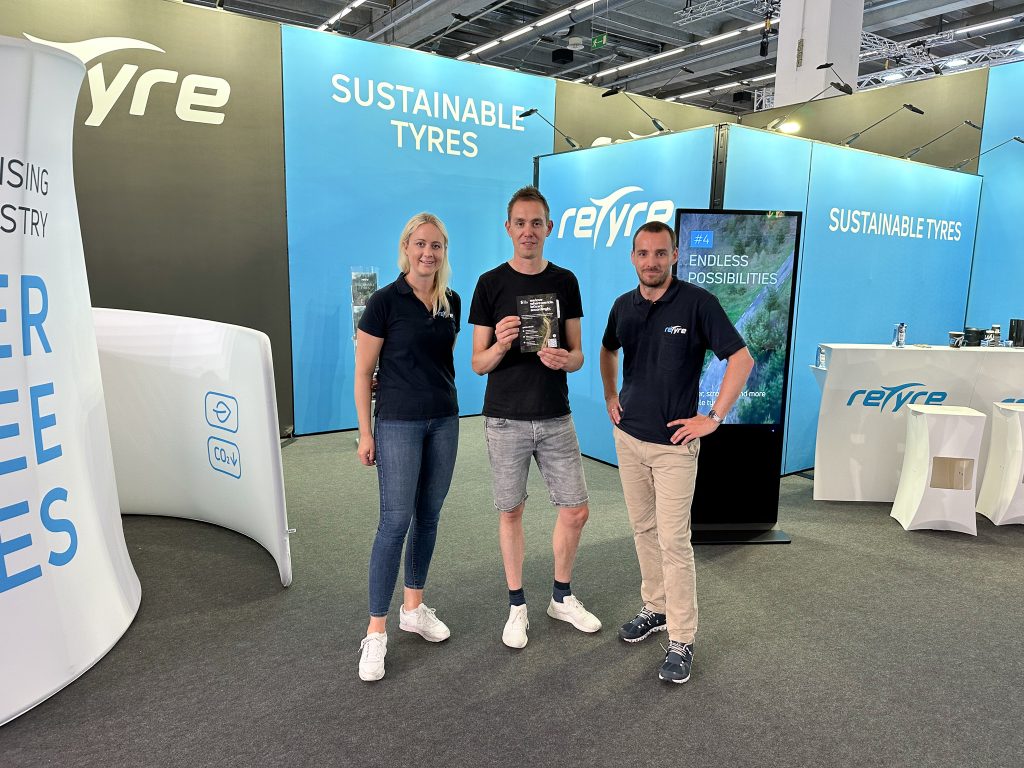ReTyre, as an innovative tire company fully committed to sustainability, is once again leading the charge toward a greener future. With the latest initiative, we have signed the Shift Cycling Culture Climate Commitment, further solidifying our dedication to fighting climate change. By joining this global movement, we are taking a stand against carbon emissions and embracing sustainable practices within the cycling industry.
The Shift Cycling Culture Climate Commitment
The Shift Cycling Culture Climate Commitment (SCCCC) is an international initiative devoted to the unification of cycling organizations and businesses in combating climate change. It envisions a climate-conscious cycling culture capable of wielding its influence to drive eco-friendly changes within the cycling industry and beyond.
Erik Bronsvoort, the director of Shift Cycling Culture, is a renowned expert in the bike industry’s circular economy. Bronsvoort has been instrumental in motivating the cycling industry to take responsibility for its CO2 emissions and to start dialogues on sustainability, by rallying CEOs and company owners in the industry to commit to reducing CO2 emissions by 55% by 20301.

The Shift Towards Circular Economy
At Eurobike 2023 we had an opportunity to chat with Erik about the challenges and changes the cycling industry needs to implement. While cycling is inherently green, that doesn’t mean the industry can rest on its laurels. We must strive for continuous improvement, constantly evaluating and reevaluating how our operations affect the planet.
Both reTyre and SCCCC have recognized the importance of implementing the changes at the core of the problem, extending it far beyond from simply reducing waste. It is about reinventing the way we conceive and manufacture products, striving to use materials and methods that ensure complete repurposing, and promoting a circular economy.
Bronsvoort’s mission through Shift Cycling Culture is to accelerate the shift to responsible production, focusing on transforming the linear economic system into a circular one. His expertise in the field centers on the reduction of waste and pollution and the sourcing of renewable materials, including recycled and bio-based sources.
“We have chosen to become a part of the Shift Cycling Network exactly because it aligns with our values and focus regarding industry manufacturing practices towards a closed-loop circular economy. The cycling industry needs to go beyond the greenwashing, we need to implement the change at the core(s) of the problem: in the material usage, manufacturing processes, and transportation practices.”, says Paul Magne Amundsen, CEO of reTyre.
Circular Economy in the Tyre Industry
ReTyre’s visionary commitment to a circular economy addresses a significant issue within the tire industry: the rubber problem. Every year, 1.8 billion tires are disposed of globally, and two-thirds of these discarded tires end up in legal or illegal waste sites, contributing to air pollution and a severe environmental hazard.
By creating tires from reusable bio-based materials, reTyre is addressing this global challenge head-on, at the same time aiming to establish a profitable circular economy that benefits multiple industries simultaneously. Additionally, these bio-based elastomers can be repurposed in other industries, further facilitating a circular economy and reducing environmental impact on a wider scale.
ReTyre’s alignment with SCCCC marks an important step in the commitment towards a greener future. By joining this initiative, reTyre not only reinforces commitment to sustainability but also sets the stage for more cycling industry leaders to follow suit, bolstering the momentum towards an industry-wide shift into a sustainable, closed-loop circular economy in the cycling industry.



